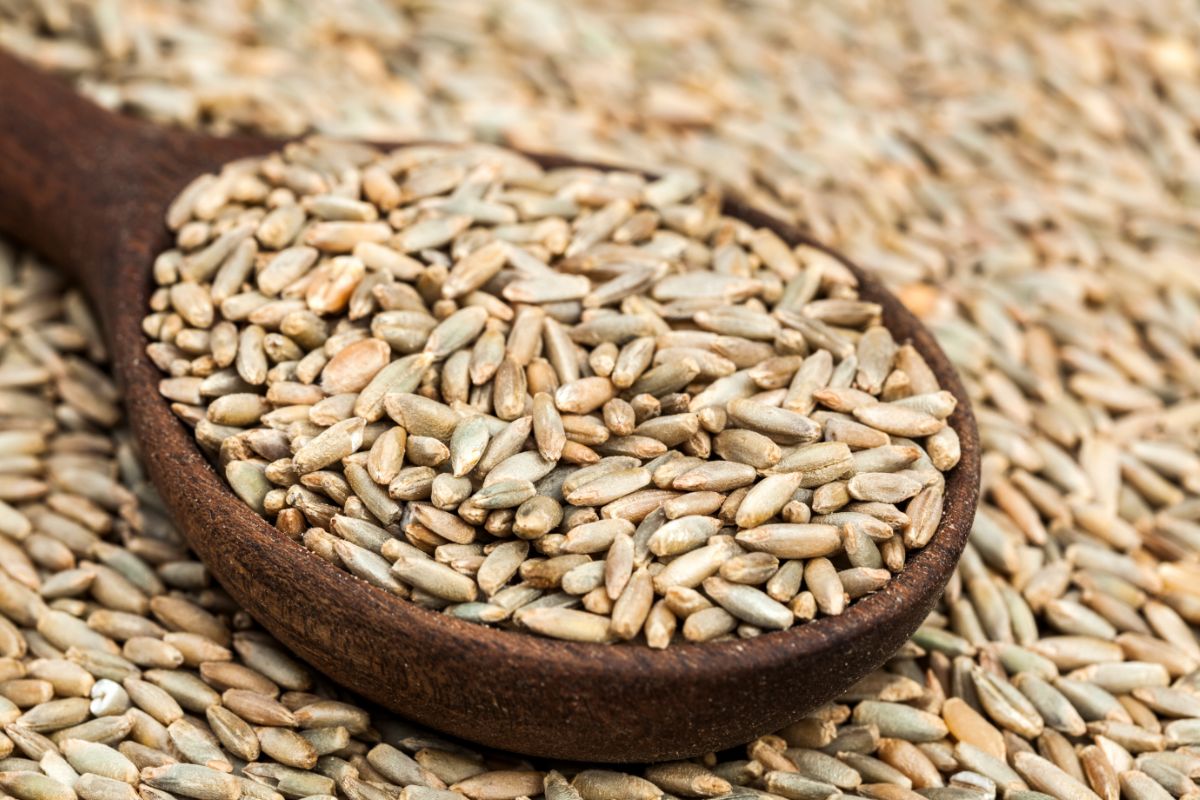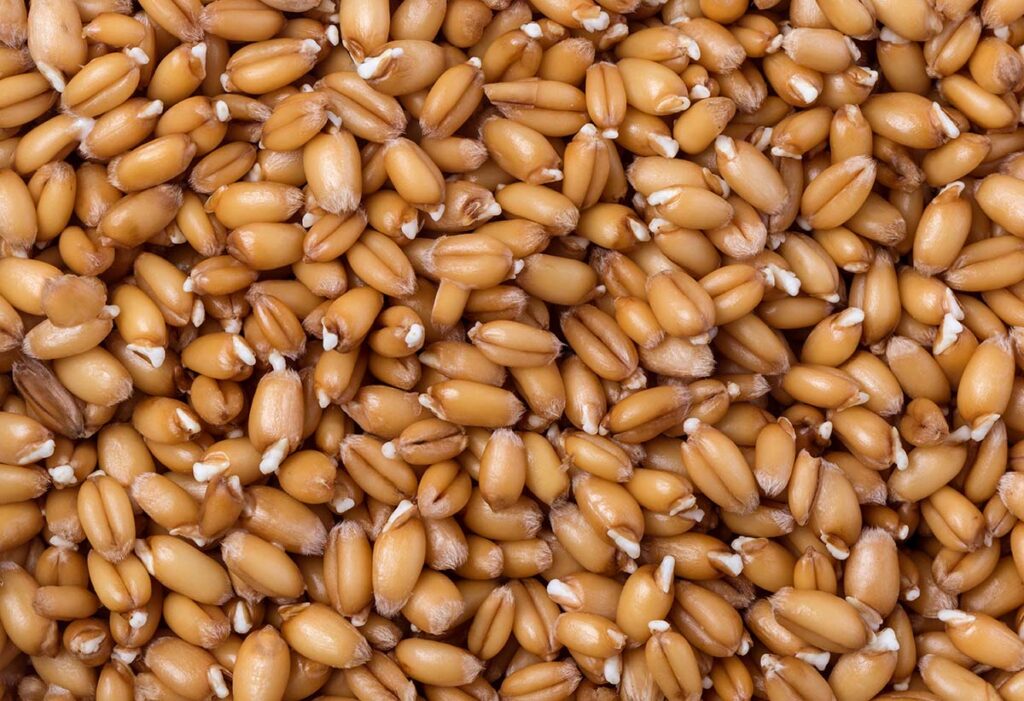If you want to eat healthy and nutritious food, then you can’t go wrong with whole grains. A staple ingredient in many places all over the world, whole grains are said to help people live longer, healthier lives.
However, most of these people who live to a ripe old age don’t simply live on whole grain bread and bran flakes; rather, they consume whole grains that have been minimally processed and cooked in ways that maximize the nutritious value of the grains.
In a lot of different culinary traditions from all over the world, grains are meticulously prepared by soaking, fermenting, or sourdough leavening before being used.
Soaking grains is a preparation method that’s slowly making its way to the USA, but is it really with the extra effort?
Keep reading to find out which grains can be safely soaked, as well as the benefits that soaking grains can give you.
What Grains Can Be Soaked?
Not all whole grains can be soaked as the liquid might cause the grains to break down. Here are the grains that can and can’t be soaked.
- Can be soaked or fermented – rye, barley, quinoa, and wheat
- Can be soaked but for not as long – millet, rice, spelt, and buckwheat
- Don’t need to/cannot be soaked – whole millet, whole rice, and flaxseed if only eaten in small amounts
Benefits Of Soaking Grains
Complex carbohydrates and dietary fiber are both found in grain products.
They also have B vitamins such as niacin and B6, and they have traces of minerals such as calcium, iron, phosphorus, potassium, and zinc.
All of these are very important in keeping your body healthy.
However, there is a catch: the natural compounds that are found in grains can make it difficult to digest them, which makes it difficult to absorb the minerals they contain.
Those complex carbs can be the cause of excruciating pain, bloating, and digestive upset for some people, particularly those whose digestion is already damaged.
By soaking some grains, you can break down some of these compounds, which makes digestion simpler.
When grains are soaked, a class of chemicals known as lower-order inositols is also released. These include myo- and d-chiro-inositol in particular.
These substances contribute to the maintenance of metabolic, hormonal, and healthy blood sugar levels.
Here are a few more benefits of soaking grains.
You Can Better Absorbe Minerals
You can stimulate the production of the enzyme phytase in whole grains by soaking them overnight in warm water.
After that, this enzyme gets to work dismantling the phytic acid that is responsible for binding minerals like iron, calcium, and zinc.
The phytase frees the minerals that are bound within whole grains and makes it easier for your body to absorb them.
The process of sprouting grains also begins with soaking them first.
When grains are sprouted, they tend to release much more minerals than when they are simply soaked.
Most individuals who eat an otherwise balanced diet that includes meat, fish, and vegetables will absorb the minerals their bodies need.
However, if you’re concerned about your mineral consumption, soaking or sprouting your grains might work for you.
Improved Digestive Processes
When you soak your grains, not only does this activate the enzyme phytase, but it also stimulates the enzyme amylase, which is responsible for breaking down the complex starches that are contained in grains.
Because of these grains’ complex carbohydrates, digestion might be challenging for certain people.
The digestion of grains is typically made a little simpler when the starches in them are first broken down by soaking, sprouting, or sour leavening, and then by cooking.
Because of this, sourdough bread is not only easier to digest than quick-rise wheat bread, but it’s also allowed on a low-FODMAPs diet.
This is especially true when the bread is produced from ancient grains like spelt.
Helps With Blood Sugar And Hormone Levels
Not only do enzymes increase the availability of minerals, but they can also change phytic acid into lower-order inositols.
Phytic acid is the compound that makes the minerals in grains difficult to absorb, so changing it into something else helps your body with digestion.
These micronutrients maintain a healthy balance of blood sugar as well as metabolic and hormonal function.
These lower-order inositols are frequently used therapeutically as supplements to support fertility, hormonal health, and blood sugar regulation.
They have been shown to have a particularly dramatic effect on the hormonal health and fertility of women who have polycystic ovarian syndrome (PCOS).
Are There Downsides To Soaking Grains?

While soaking grains increases the availability of minerals, makes grains simpler to digest, and boosts the production of chemicals that maintain metabolic health, there are a few downsides to the practice.
Soaking grains can be a time-consuming process that is, on average, less effective than sprouting or fermenting sourdough.
Here are some common downsides of soaking grains
Takes A Long Time
While soaking grains is very easy, you must plan ahead as it can take a lot of time.
If you want to reap the benefits of soaking but have problems remembering or planning ahead, you can find sprouted flour and sprouted grain for sale at many natural foods stores as well as online.
You can find sourdough bread in almost any grocery store in the country.
You’re Probably Getting All Of The Minerals You Need Already
You probably don’t need to bother about soaking your grains if you’re eating a nutrient-dense diet that’s packed with minerals from fish, meat, and vegetables.
The mineral-binding actions of food phytates can contribute to mineral shortages; however, this is mainly only an issue in developing nations where people may primarily rely on grains and pulses and have very little access to other mineral-rich whole foods.
People who follow vegan or vegetarian diets and who, as a result of avoiding meat, fish, eggs, and milk, are forced to rely largely on grains and pulses as their primary sources of nutrition can also be concerned about this not getting enough minerals.
In this case, soaking grains may be beneficial.
If your diet is abundant in mineral-rich foods, soaking grains probably won’t add a substantial amount of extra minerals to your overall diet.
Although grains that have been soaked or sprouted are simpler to digest, eating unprocessed grains could still be beneficial to your health.
The Mineral-Binder Phytate Is Helpful To Some People
Certain individuals, particularly those of Irish origin, have a genetic predisposition to develop hemochromatosis, which is characterized by an elevated iron level in the body.
Even though avoiding iron-rich meals such as organ meats and clams is the way moist suffers deal with this issue, the iron-binding effects of whole grains that haven’t been soaked might be beneficial.
By not soaking the grains, you’re keeping the mineral binder phytate trapped inside, and it’s this that may help hemochromatosis sufferers.
Lose Anti-Oxidant Properties
Through soaking grains, you lose the phytic acid that’s inside.
Although phytic acid is frequently referred to as an anti-nutrient it can prevent the absorption of minerals, this very property also makes it an effective antioxidant.
To be more specific, it holds iron together.
Iron is necessary for the proper functioning of many of your body’s systems.
However, as seen above, too much iron is a bad thing.
Because the phytic acid that’s present in whole grains sticks to the iron and stops you from fully absorbing it, it can function as an antioxidant.
Researchers are also investigating the potential therapeutic role that it might play in the treatment of colon and other cancers.
Phytic acid not only binds minerals, but it also binds heavy metals in the gut, which may help to reduce the number of heavy metals that are accumulated in the body.
Summary – Soaked Or Unsoaked Grains?
Like a lot of health questions, whether or not you should soak grains doesn’t seem to have a straight answer.
There are a few benefits of soaking grains, but you’ll have to decide whether the time it takes is worth it.
Most people will be able to safely eat whole grains without the need to soak them.
While soaking does help with mineral absorption, most people are getting all of the minerals they need so long as they follow a healthy diet.
If you find that you have difficulty digesting whole grains, you might want to experiment with soaked or sprouted grains, as well as sour-leavened bread.
It’s recommended that individuals who are prone to iron overload or who are exposed to heavy metals consume whole grains for the phytic acid content of these grains, and these grains should be eaten naturally without soaking or any other treatments.
All-in-all it seems that so long as you don’t have any health issues that mean that you must/must not soak your grains, soaking whole grains all comes down to personal preference.








